What is a Mutation?
A mutation is a permanent alteration in the DNA sequence of a gene. This can result from changes in the nucleotide sequence, the addition or deletion of entire genes, or the rearrangement of the genetic material within a chromosome.
Types of Mutations
There are several types of mutations, including:
- Point Mutations: These involve a change in a single nucleotide, such as substitution, insertion, or deletion.
- Chromosomal Mutations: These involve changes in the structure or number of whole chromosomes, such as deletions, duplications, inversions, or translocations.
- Gene Mutations: These involve changes in the sequence of a gene, leading to altered or nonfunctional proteins.
Causes of Mutations
Mutations can be caused by various factors, including:
- Spontaneous Mutations: These occur naturally during DNA replication, recombination, or repair.
- Environmental Factors: Exposure to radiation, chemicals, or certain viruses can increase the likelihood of mutations.
- Errors in DNA Replication: Mistakes made during the copying of DNA can lead to mutations.
Effects of Mutations
Mutations can have different effects on an organism, including:
- Neutral Mutations: These have no effect on the organism's phenotype or survival.
- Beneficial Mutations: These can confer a selective advantage, leading to adaptation and evolution.
- Deleterious Mutations: These can result in harmful effects, such as genetic disorders or decreased fitness.
Study Guide
To study mutations, consider the following:
- Learn about the different types of mutations and their impact on gene function.
- Understand the causes of mutations, including both internal and external factors.
- Explore the effects of mutations on organisms and the role of natural selection in shaping genetic variation.
- Review case studies of specific mutations and their implications for human health and evolution.
- Practice analyzing DNA sequences and identifying potential mutations using bioinformatics tools.
By understanding mutations, you can gain insight into the molecular basis of genetic diversity, disease, and evolutionary processes.
[Mutation] Related Worksheets and Study Guides:
.◂Science Worksheets and Study Guides Sixth Grade. Plant reproduction
Study Guide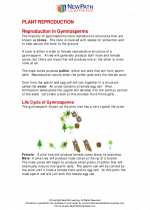 Plant reproduction
Plant reproduction  Activity Lesson
Activity Lesson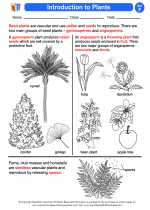 Introduction to Plants
Introduction to Plants  Worksheet/Answer key
Worksheet/Answer key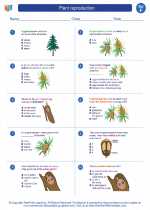 Plant reproduction
Plant reproduction  Worksheet/Answer key
Worksheet/Answer key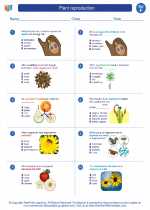 Plant reproduction
Plant reproduction  Worksheet/Answer key
Worksheet/Answer key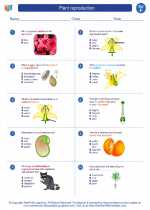 Plant reproduction
Plant reproduction  Vocabulary/Answer key
Vocabulary/Answer key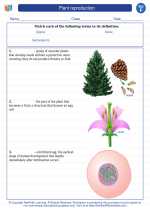 Plant reproduction
Plant reproduction 

 Activity Lesson
Activity Lesson
 Worksheet/Answer key
Worksheet/Answer key
 Worksheet/Answer key
Worksheet/Answer key
 Worksheet/Answer key
Worksheet/Answer key
 Vocabulary/Answer key
Vocabulary/Answer key

The resources above cover the following skills:
LIFE SCIENCE
From Molecules to Organisms: Structures and Processes
Students who demonstrate understanding can:
Use argument based on empirical evidence and scientific reasoning to support an explanation for how characteristic animal behaviors and specialized plant structures affect the probability of successful reproduction of animals and plants respectively.